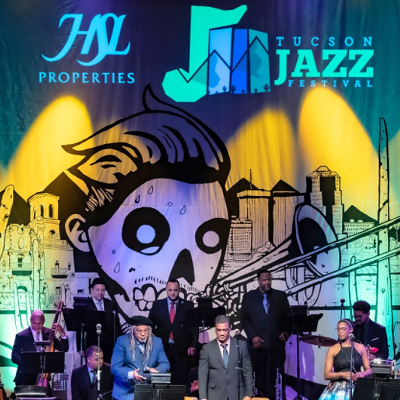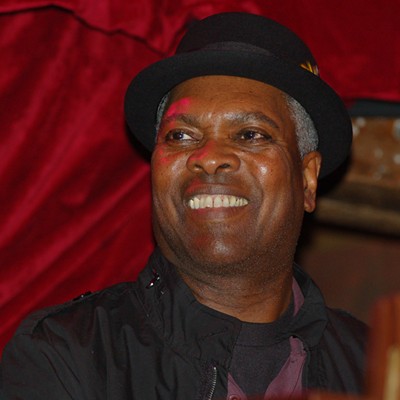Its mission took on even greater significance in the aftermath of the devastation wrought in New Orleans by Hurricane Katrina.
"People lost a lot," says Mayfield on the phone from a tour stop in Seattle. "The majority of the band members have been displaced from their homes and are now living in several different parts of the country."
Mayfield knows about loss. His father drowned during the flooding of New Orleans.
But the musician found it necessary to carry on, to bring hope to the people of New Orleans, to maintain its musical legacy and to provide work for the musicians in the nonprofit New Orleans Jazz Orchestra (NOJO).
"We had to get a tour off the ground last fall and had to struggle to find the resources. I mean in the hundreds of thousands of dollars. The city of New Orleans gave us almost half a million dollars. That's a lot of heavy lifting."
Fundraising took place around the country for the NOJO. "The New Jersey Performing Arts Council also has been hugely helpful. When the disaster struck, the American public stepped up," Mayfield says.
In addition to directing the NOJO, Mayfield is a member of the critically acclaimed New Orleans Latin jazz group Los Hombres Calientes, and he leads the Irvin Mayfield Quintet. Since 2003, he also has served in the job of cultural ambassador for the city of New Orleans and the state of Louisiana.
Although publicity material for the New Orleans Jazz Orchestra posits that the NOJO was loosely based on the Jazz at Lincoln Center program, Mayfield anticipates a question about this before it is asked.
"When people ask if what we do is like Wynton Marsalis and Jazz at Lincoln Center, I tell them this: If you are expecting to come out in Tucson and see your grandmother's jazz orchestra, you're going to be surprised."
Are those fightin' words directed at Marsalis, a fellow New Orleans native, and de facto leader of the traditionalist movement in jazz?
Maybe playfully. Marsalis, in fact, has been Mayfield's mentor since he was a teenager. Mayfield spent 2 1/2 years as the older musician's apprentice in New York City.
Really, he's just stating the obvious. "You have to be ready to shake your ass when you see this orchestra play. ... Trying to communicate the experience of this music in words is impossible, but I can tell you to expect a good time. It's an organized, sophisticated down-home party."
Mayfield is adamant when he says, "We have more fun up on the stage than the audience does sometimes. For a lot of these musicians, who have lost so much, it's such a release to be playing this music. They can find solace in a time when they're feeling loss."
Which brings Mayfield to a comparison of blues and jazz, both of which find their way into the music of NOJO.
"If the blues always approaches sadness with an inherent sense of humor and optimism, jazz takes that and tells people what it means to be an individual and what it means to be part of a community."
And being part of a community, if you haven't noticed, is important to Mayfield, especially in regards to his role as a musician.
His accomplishments as cultural ambassador include founding the Institute of Jazz Culture at Dillard University, where he is a faculty member; helping to organize the jazz music program for the Orleans Parish Prison; and teaming up with the Episcopal church on a new national initiative for spiritual outreach.
"Jazz is a serious tool for healing, housed in the city of New Orleans," he says.
Mayfield and the members of the NOJO are serious about their collective legacy. They've been entrusted with preserving part of the culture of a disaster-struck city and honoring a significant musical heritage. But those aren't the only things on these musicians' minds.
Before Mayfield signs off, he says it's his obligation to convey one final message to the people of Tucson, primarily to the females of the species.
"The guys in the band want me to remind you that there are a lot of single, young men in the New Orleans Jazz Orchestra. I know I'll be in trouble with them if that's not in the article."










